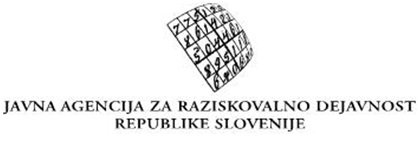More than agreement: how speakers assign syntactic features in real time (N6-0156)
Psycholinguistic research has made a very good progress into understanding how people process various syntactic dependencies, in particular, syntactic agreement, or sharing of syntactic features like person, gender and number, between the subject of the sentence and the verb. Feature assignment is a process similar but not identical to agreement: in the latter, the features of the subject and verb are ‘shared’, whereas in the former a lexical head ‘projects’ some feature to a neighboring item, e.g. a transitive verb assigning an accusative case to a noun. Feature assignment is a process well-known and explored in detail by theoretical linguists but it has not so far received proper attention in the psycholinguistic literature. One reason for this is that the psycholinguistic researchers working on agreement have focused largely on English and the Romance languages with relatively poor inflectional morphology while feature assignment is often visible only a rich system of morphological affixation. Another potential reason is that the existing research concentrated on agreement as a sentence level phenomenon, while feature assignment is a phrasal phenomenon, restricted to particular subparts of the sentence.
The project intends to close this gap by exploring feature assignment in real time from the psycholinguistic perspective. The project is innovative in at least three major ways. First, we will pit the existing psycholinguistic models of syntactic agreement against new experimental data pertaining to feature assignment in Bulgarian and Russian, two Slavic languages with rich morphology, and, in particular, explore the role of working memory during feature assignment in real time. We expect this to lead to enrichment of our understanding of the relevant cognitive mechanisms and also the way these mechanisms coincide or differ from those underlying syntactic agreement. The project will concentrate on feature assignment in Numeral phrase as in five rusty old cars, which provide a rich and previously unexplored source of new insights over and above the traditional foci on sentence-level agreement. Both Bulgarian and Russian numeral phrases provide an excellent testing ground for addressing this issue from the experimental perspective: a numeral assigns a special ‘count’ feature to the noun which is morphologically visible in both languages but the intermediate adjectives do not agree with the noun. In addition, the format of numeral phrase allows us to investigate the distance factor in feature assignment (manipulated by the number of intervening elements between the numeral and the noun).
We thus expect that a systematic exploration of the syntactic process of feature assignment in real time will provide us with novel and unique insights concerning not only the mechanisms of syntactic encoding per se, but also their interactions with the mental grammar.
Project group:
Penka Stateva (PI) – University of Nova Gorica (sicris) (2020-)
Arthur Stepanov – University of Nova Gorica (sicris) (2020-)
Danil Khristov – University of Nova Gorica (sicris) (2020-)
Project group at partner institution:
Julie Franck (PI) – University of Geneva, Switzerland
Doug Saddy – University of Reading, UK
Duration, type, size, funding:
Project duration: 1.10.2020–30.9.2023
Project type: standard basic research project; category C
Size: 2448 effective hours per year (UNG)
Funding agency: Javna agencija za raziskovalno dejavnost Republike Slovenije.
Funding agency for Swiss part: The Swiss National Science Foundation.
Project in Sicris database: Link
Publications:
— STEPANOV, Arthur. (2024, v recenziji). Exploring feature assignment in real time: The case of Russian numeral phrases. V: Advances in Formal Slavic Linguistics 2023, Berlin: Language Science Press.
— STATEVA, Penka, FRANCK, Julie, STEPANOV, Arthur. 2023. Speakers' errors in the use of the 'count form' in Bulgarian numeral phrases : possible sources of the distance effect. Journal of applied linguistic and intercultural studies 4(4), str. 1-10, ilustr. ISSN 2603-3291. Povezava
— KHRISTOV, Danil. 2023. The Processing of Feature Assignment in the Bulgarian Numeral Phrase. Doctoral dissertation proposal, University of Nova Gorica (sprejeto na seji Senata UNG dne 13.11.2023).
— STATEVA, Penka. A psycholinguistic perspective on feature assignment in Bulgarian and Russian numeral phrases : lecture at the international conference Language, culture and identity: manifestations, transformations and interplay, 26 June 2023, University of Ruse, Bulgaria.
— KHRISTOV, Danil, STEPANOV, Arthur, FRANCK, Julie, STATEVA, Penka. 2022. Feature assignment errors in the Bulgarian quantified noun phrase. V: Formal Approaches to Slavic Linguistics (FASL 31) : McMaster University, Faculty of Humanities, Hamilton, Ontario, 24 June 2022 - 26 June 2022. Hamilton (Ontario): McMaster University. 2022, str. 1-2. Povezava,
— KHRISTOV, Danil, FRANCK, Julie, STEPANOV, Arthur, STATEVA, Penka. 2021. Beyond agreement : how syntactic features are assigned in real time. V: KOEVA, Svetla (ur.). Proceedings of the International Annual Conference of the Institute for Bulgarian Language. Sofija: Prof. Marin Drinov Publishing House of Bulgarian Academy of Sciences, Vol. 2, str. 123-132, ilustr. Dokladi ot Meždunarodnata godišna konferenciâ na Instituta za bʺlgarski ezik Prof. Lûbomir Andrejčin. Povezava
— STEPANOV, Arthur, KRAPOVA, Iliana. The nominal structure of clausal complements : an experimental study of wh-extraction in Bulgarian. V: KOEVA, Svetla (ur.). Proceedings of the International Annual Conference of the Institute for Bulgarian Language : Sofia, 2021 = Dokladi ot Meždunarodnata godišna konferencija na Instituta za b''lgarski ezik "prof. Ljubomir Andrejčin" : Sofija, 2021. Sofia, Sofija: Prof. Marin Drinov Publishing House of Bulgarian Academy of Sciences, 2021. Vol. 2, str. 28-48, ilustr. Dokladi ot Meždunarodnata godišna konferenciâ na Instituta za bʺlgarski ezik Prof. Lûbomir Andrejčin. ISSN 2683-1198. Povezava
— SMITH, G., FRANCK, J., & TABOR, W. (2021). Encoding interference effects support self-organized sentence processing. Cognitive Psychology, 124, 101356. Povezava
— FRANCK, J., Sadri Mirdamadi, F., & Kahnemuyipour, A. (2020). Object attraction and the role of structural hierarchy: evidence from Persian. Glossa: A Journal Of General Linguistics, 5(1), 27. Povezava
— FRANCK, J., & Wagers, M. (2020). Hierarchical structure and memory mechanisms in agreement attraction. Plos One, 15(5), e0232163. Povezava

